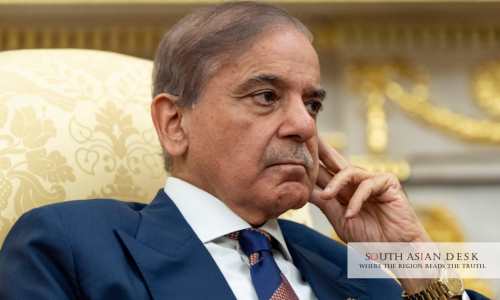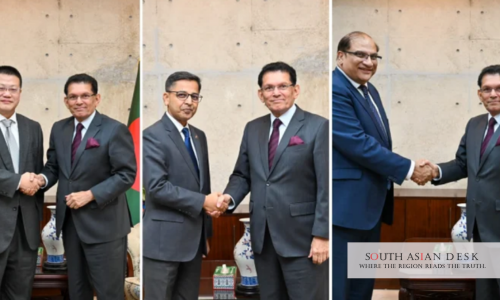Prime Minister Shehbaz Sharif on October 17, 2025, in Islamabad ordered the speedy repatriation of Afghans residing illegally in Pakistan, ruling out any extension for their stay and mandating the closure of all Afghan refugee camps, amid rising concerns over cross-border terrorism.
This decision underscores the escalating tensions between Pakistan and Afghanistan, potentially exacerbating humanitarian challenges in South Asia while addressing Pakistan’s long-standing security burdens from hosting millions of refugees over decades.
Speedy Repatriation of Afghans: Meeting Highlights
In a high-level meeting chaired by Prime Minister Shehbaz Sharif, key officials including Chief of Army Staff Field Marshal Syed Asim Munir and chief ministers from Punjab, Sindh, and Balochistan deliberated on the repatriation process. The meeting resolved to expedite the dignified return of all illegal Afghan nationals without granting further leeway.
Officials reported that as of October 16, 2025, 1477592 Afghans had already been repatriated in phases. The government plans to increase exit points along the Pak-Afghan border to streamline the process. Prime Minister Shehbaz Sharif directed provincial governments and federal institutions to coordinate closely for an orderly repatriation.
He emphasised treating the elderly, women, children, and minorities with care during the process. “Harbouring or sheltering illegal Afghan residents, including allowing them to stay in guest houses, is a punishable offence under the law,” the prime minister stated.
Afghan Camps Closure Pakistan 2025: Security Imperatives
The directive to shut all Afghan refugee camps by 2025 stems from persistent security threats. Pakistan has repeatedly raised concerns with Afghan authorities about terrorist groups operating from Afghan soil, but these issues remain unresolved despite diplomatic engagements.
Prime Minister Shehbaz Sharif highlighted Pakistan’s sacrifices in the fight against terrorism, noting heavy losses in lives and resources. “The brave people of Pakistan, who have sacrificed so much in the fight against terrorism, now rightly ask how long we can continue bearing the burden of Afghan refugees,” he said.
The meeting praised the armed forces for repelling recent cross-border attacks, underscoring the need for Pakistan Afghan refugees no extension to safeguard national security.
Background
Pakistan has hosted Afghan refugees since the late 1970s, following the Soviet invasion of Afghanistan. Over four decades, the country has sheltered millions, providing education, healthcare, and livelihoods despite economic strains. Official data indicates Pakistan hosted approximately 4 million registered and unregistered Afghan refugees in recent years, with ongoing voluntary repatriation efforts supported by international organisations.
In 2023, Pakistan initiated a plan to repatriate over 1 million undocumented Afghans, citing security and economic pressures. By September 30, 2025, UNHCR reported voluntary repatriations, but forced returns have drawn concerns. The current phase targets illegal residents, with no extension permitted.
The United Nations High Commissioner for Refugees has expressed worries over the denotification of refugee villages and urged organised, voluntary returns. Pakistan maintains its approach is humane, focusing on dignity and safety.
This policy shift follows a surge in militant activities linked to Afghan-based groups. Government statements reiterate that while Pakistan supports Afghanistan in crises, the prolonged presence of refugees poses unsustainable challenges.
Data from the Ministry of States and Frontier Regions shows significant repatriations since 2016, with over 5 million Afghans returning overall. However, economic instability in Afghanistan has slowed voluntary departures.
The decision aligns with broader regional dynamics, including trilateral talks with China on Afghan stability. Prime Minister Shehbaz Sharif has advocated for peace in Afghanistan to enable sustainable repatriation.
What’s Next
The government will monitor implementation through inter-provincial coordination. Additional border facilities aim to handle outflows efficiently. International partners like UNHCR may assist in ensuring protections during repatriation.
Afghan camps closure Pakistan 2025 could lead to diplomatic dialogues with Kabul to address root causes like terrorism. Observers anticipate potential appeals from human rights groups for phased approaches.
Pakistan Afghan refugees no extension may influence aid flows and bilateral ties, with calls for global support to rebuild Afghanistan.
As PM Shehbaz pushes for speedy repatriation of Afghans, the focus remains on balancing security needs with humanitarian obligations, potentially setting a precedent for regional refugee management.
Published in SouthAsianDesk, October 18th, 2025
Follow SouthAsianDesk on X, Instagram, and Facebook for insights on business and current affairs from across South Asia.






